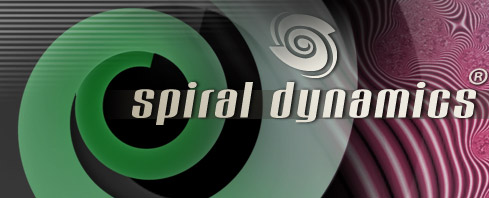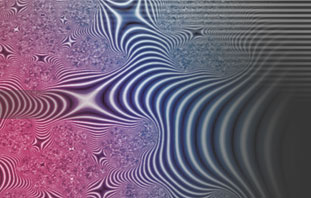 |
 |
|||||||
 |
||||||||
|
Resources > Reviews “ENRON: The Smartest Guys in the Room,” a documentary film by Alex Gibney based on the book, “The Smartest Guys in the Room: The Amazing Rise and Scandalous Fall of Enron” by Bethany McLean, Peter Elkind. This is a fascinating study in how a newly minted meme, latched to an entrenched vMEME and its privatization bugs, built fortunes and ruined lives. Review and comments. "Endless Forms Most Beautiful: The New Science of Evo Devo” by Sean B. Carroll. Norton, New York, 2005. A wonderful trip into evolutionary developmental biology and how living systems form from common elements and then differentiate through codes and switches. Reinforces the Gravesian notion of basic themes which can be expressed in myriad ways. Additional comments posted to the SD group on Yahoo! “Collapse: How Societies Choose to Fail or Succeed” by Jared Diamond. Viking, 2004. Geographer Diamond is also the author of Guns, Germs, and Steel and simply a must read. Shadowback software for automatic backup of computer files to a variety of media, available from Warm and Fuzzy Logic “First Person: New Media as Story, Performance, and Game” edited by Noah Wardrip-Fruin and Pat Harrington. MIT Press, Cambridge, 2004. Essays exploring the depth of 'computer games' as story, literature and virtual domains in the evolution of silicon space. Parts of the book: Cyberdrama, Ludology, Critical Simulation, Game Theories, Hypertexts & Interactives, The Pixel/The Line, Beyond Chat, and New Readings. “From Dawn to Decadence: 1500 to the Present” by Jacques Barzun. HarperCollins, 2000. (Perennial paperback, 2001). An eclectic masterpiece of intellectual exploration across five hundred years of Western history—the trends, forces and ideas that shape today—by a scholar among scholars. “Madness Explained: Psychosis and Human Nature” by Richard P. Bentall. Penguin, London. 2004. Explores psychopathology—“madness”—as an aspect of human nature, even an adaptive mechanism with logic, rather than merely broken brains or chemical mistakes. Helps break from the clinical traps to alternatives on how to approach profound differences. “Derrida,” a film by Amy Ziering Kofman and Kirby Dick Thus began a wonderful filmic journey into the personal side of this philosopher who has, for half a century, sought to deconstruct metaphysical certitude and introduce doubt to a world in quest of the easy answer and quick fix. Involvement and engagement in truth making, rather than reliance on external authorities or ultimate, irrevocable, preordained facts is empowering and also creates great responsibility. His intent is to deconstruct to as to build better, more comprehensively with awareness of the interplay of many complex parts. Film makers Amy Ziering Kofman and Kirby Dick followed Derrida in France , the US , and South Africa to record his actions and reactions. From a hundred hours of video, they have compiled a portrait that juxtaposes conversation, lecture, and narrated selections from Derrida’s writing. He fought against separating himself from the whole context throughout, acknowledging the “recording devices” to his classes and pulling the film makers into the totality of his world despite their efforts to remain separate. Although it is not announced in the credits, Ziering Kofman’s voice is the narrator, not because she sounds particularly good or they couldn’t use an actor with recognizable voice, but to further explore the unavoidable interplay between film maker and subject. In one amusing scene, the crew follows the Derridas out for dinner with a couple in their home in Paris . All appears normal until the hostess brings nine champagne glasses from the kitchen – four for the dinner party and five for the film crew who they, too, refused to ignore. Considerable footage from that evening was cut because the camera person kept unconsciously nodding yes or no to hospitable offers of food and wine. The viewer joins him at home, in class, with friends, and at the creation of the second Derrida archive at UC Irvine. To see a scholar look at the gray boxes of his words occupying a full library shelf, a sight which would signal to many the end of a career, triggers many reactions. One word in particular, différance, the term coined to suggest a sign differs and also defers, was the heart of an amusing anecdote told by a colleague about a party held to celebrate the word’s inclusion in a scholarly dictionary. Derrida’s elderly mother, who was at the event, thoroughly lambasted her son for spelling such a simple French word with an a instead of an e. The film doesn’t talk a lot about deconstructionism; the goal was to demonstrate it. Produced by Amy Ziering Kofman and directed by her and Kirby Dick, this is an up close and personal – as personal as he would allow – portrait of Jacques Derrida. If Derrida plays at a festival or university near you, we recommend it highly. Check www.derridathemovie.com for details. "Gangs of New York", a film by Martin Scorsese. Although occasionally weak in the screenplay and character departments and heavy on Scorsesian blood, this is still a "big movie" visual feast that turns squalor into dance. One scene in particular stands out from an SD perspective: a soliloquy which Bill 'The Butcher' Cutter (Daniel Day-Lewis) delivers to Amsterdam Vallon (Leonardo DiCaprio). Bill, leader of the Nativist gang which fights the Irish immigrants, is wrapped in a worn American flag and sitting in a rocking chair as he describes C-P (Red) to Amsterdam who is in bed with The Butcher's former lover, Jenny Everdeane (an out-of-place Cameron Diaz). To him life is about honor, power, heroic status, dominance, fear and respect. It is a great moment. Destructive Emotions: How Can We Overcome Them?, a scientific dialogue with the Dalai Lama and narrated by Daniel Goleman (author of Emotional Intelligence) One side of the coin. The Blank Slate: The Modern Denial of Human Nature Land Without Evil by Matthew Pallamary The Magic of the Metaphor by Nick Owen Comments on entries in the 2001 Santa Barbara International Film Festival |
About SD | SD in Action | About NVC Consulting | Training | Resources | FAQs | Newsletter